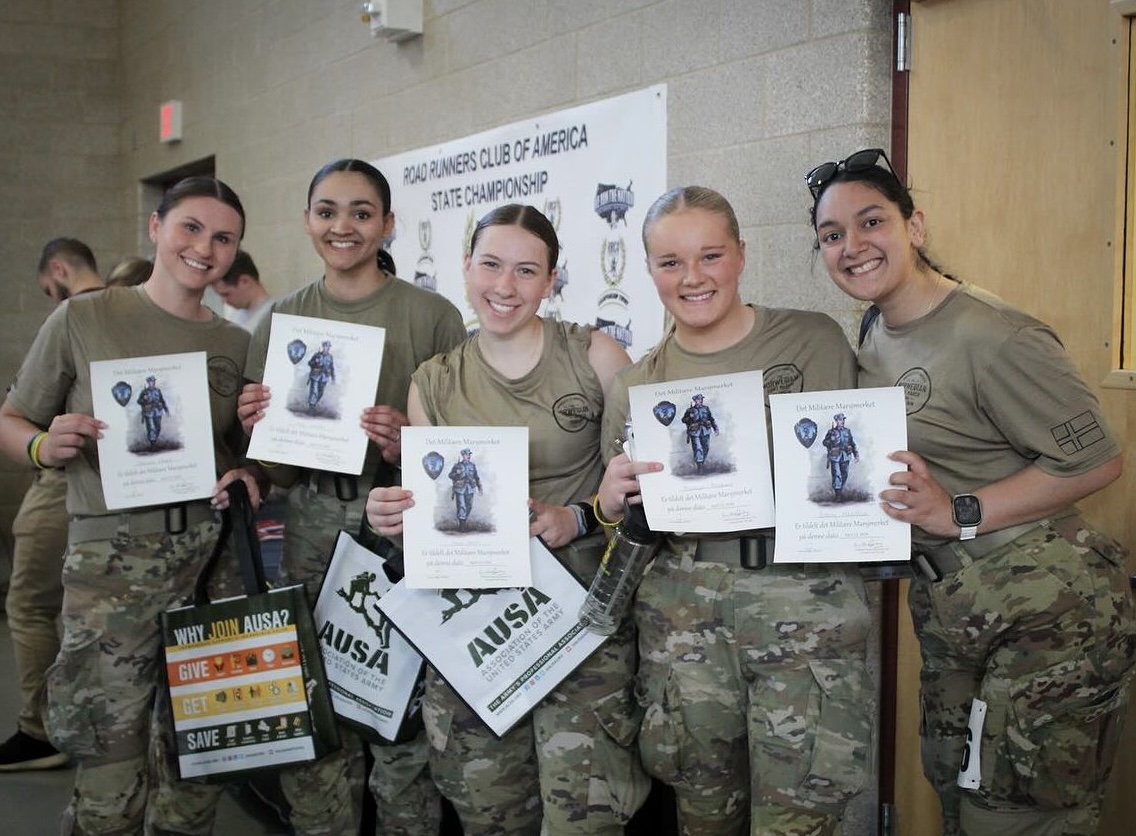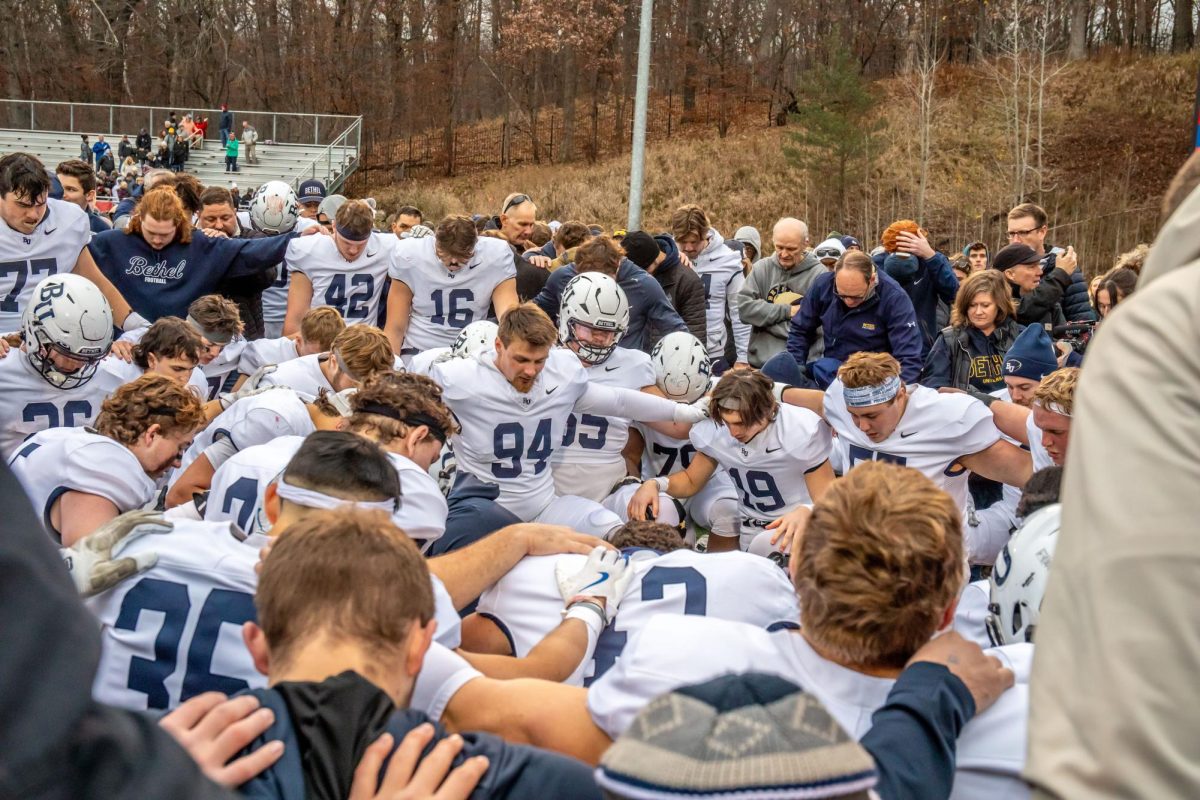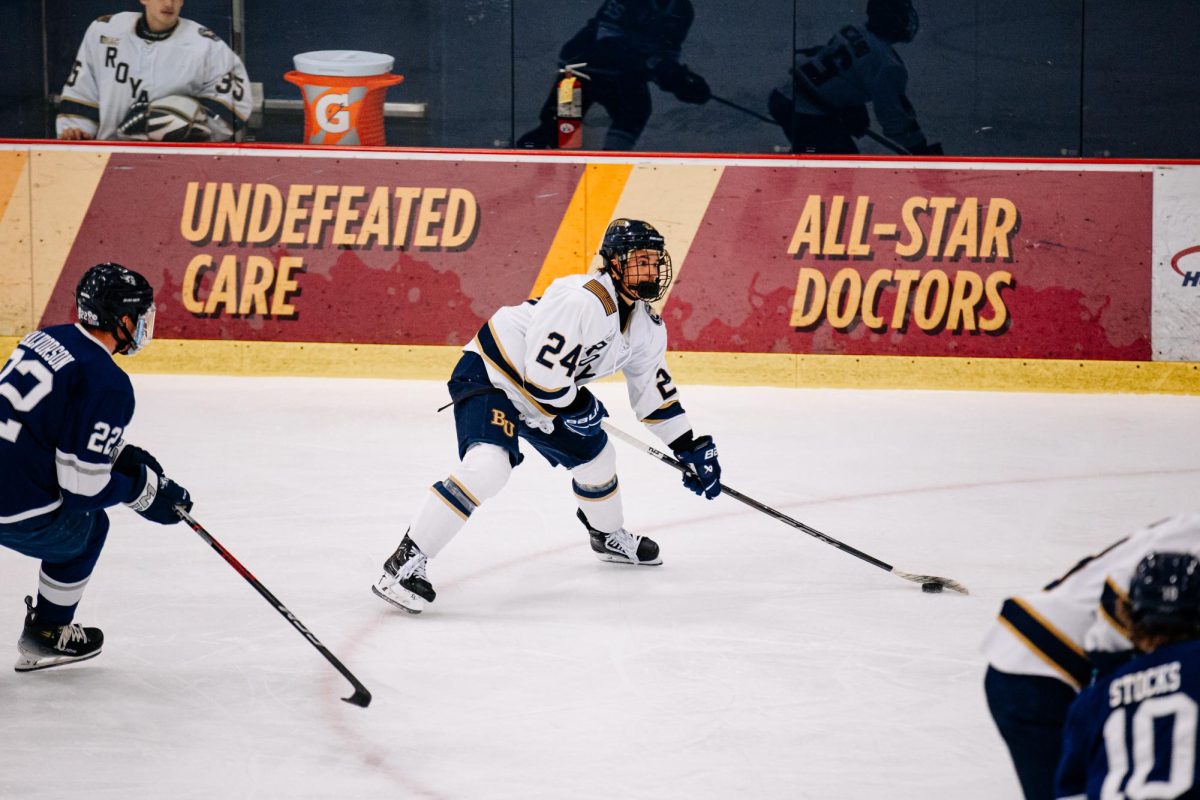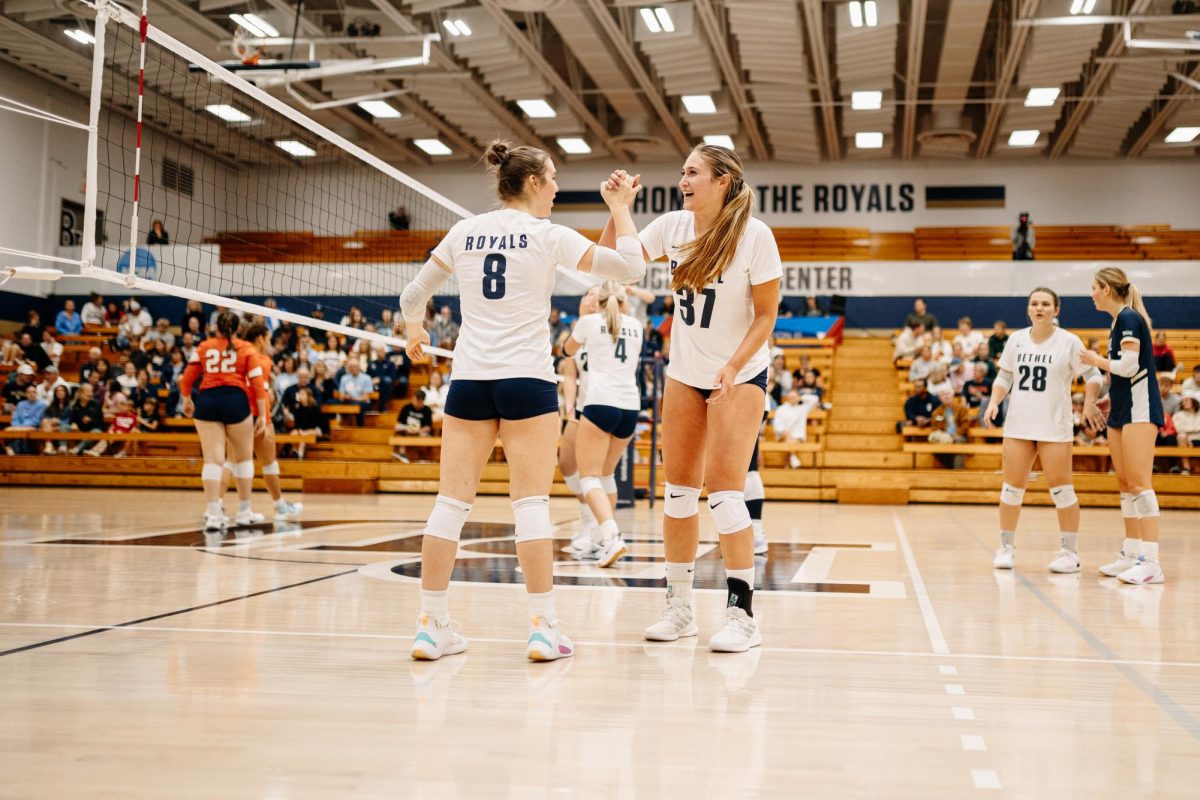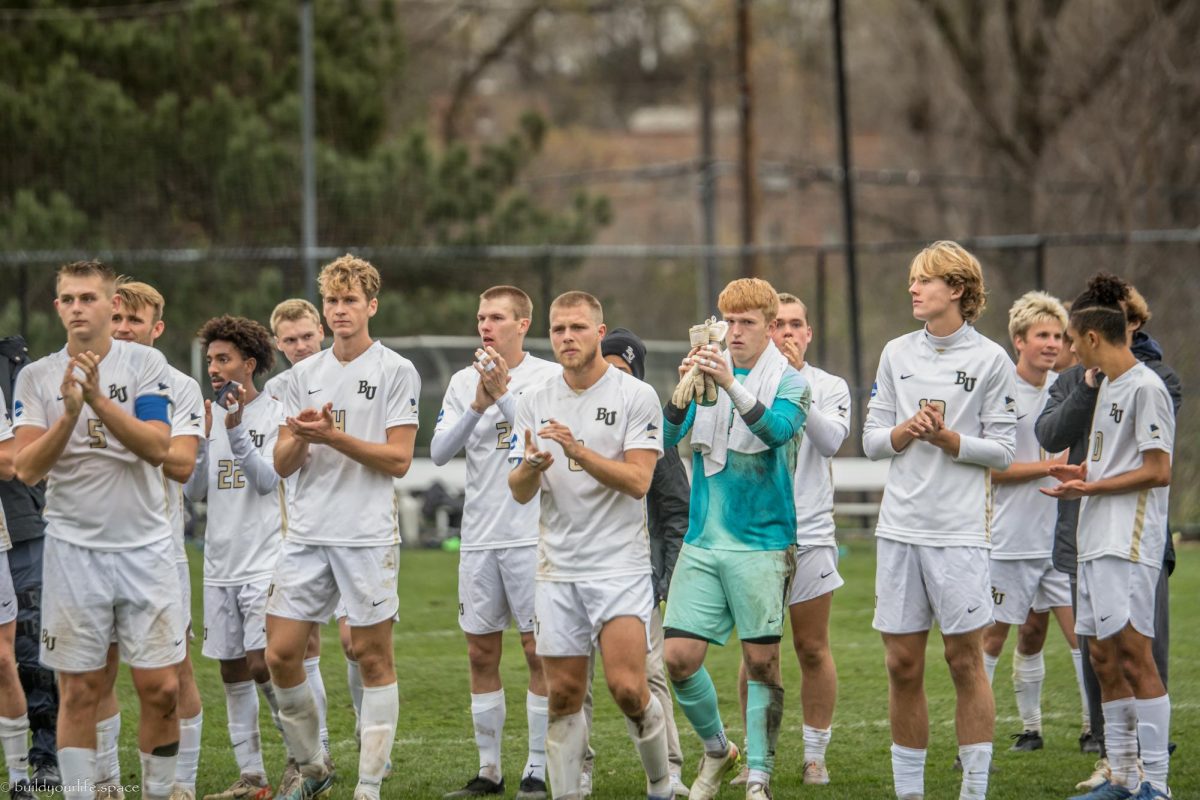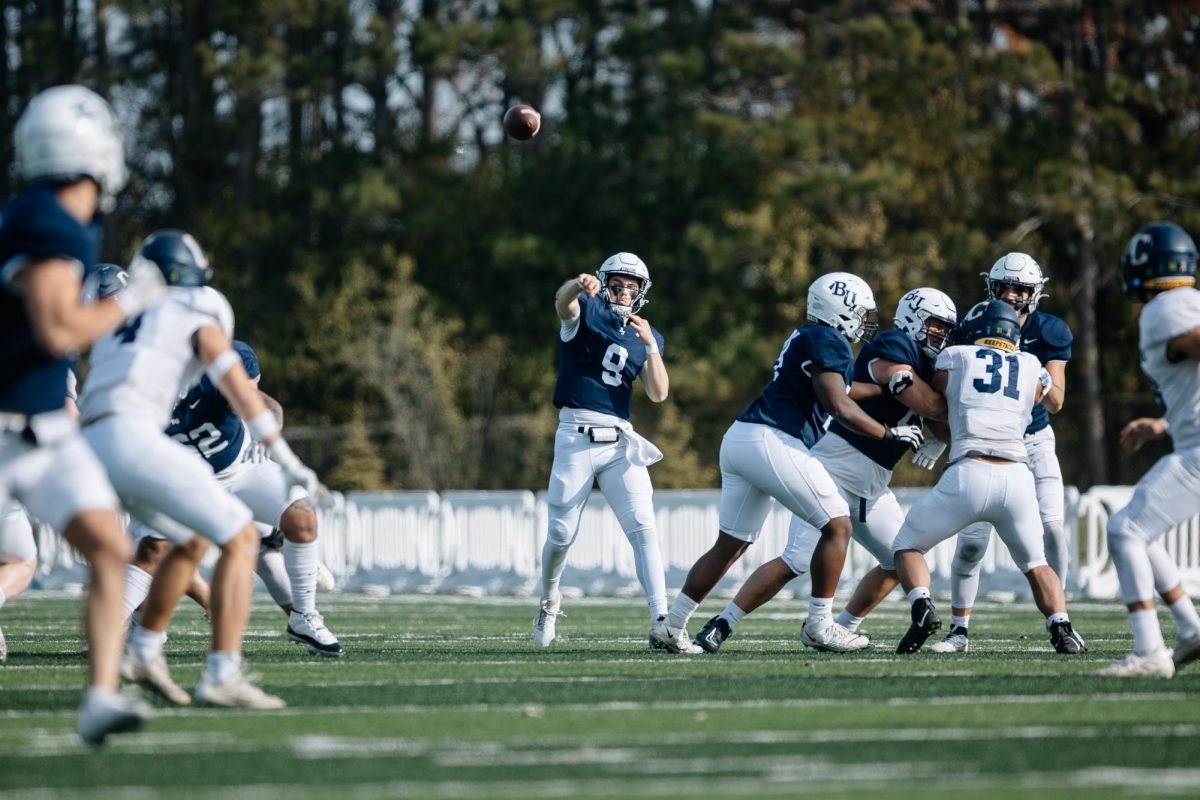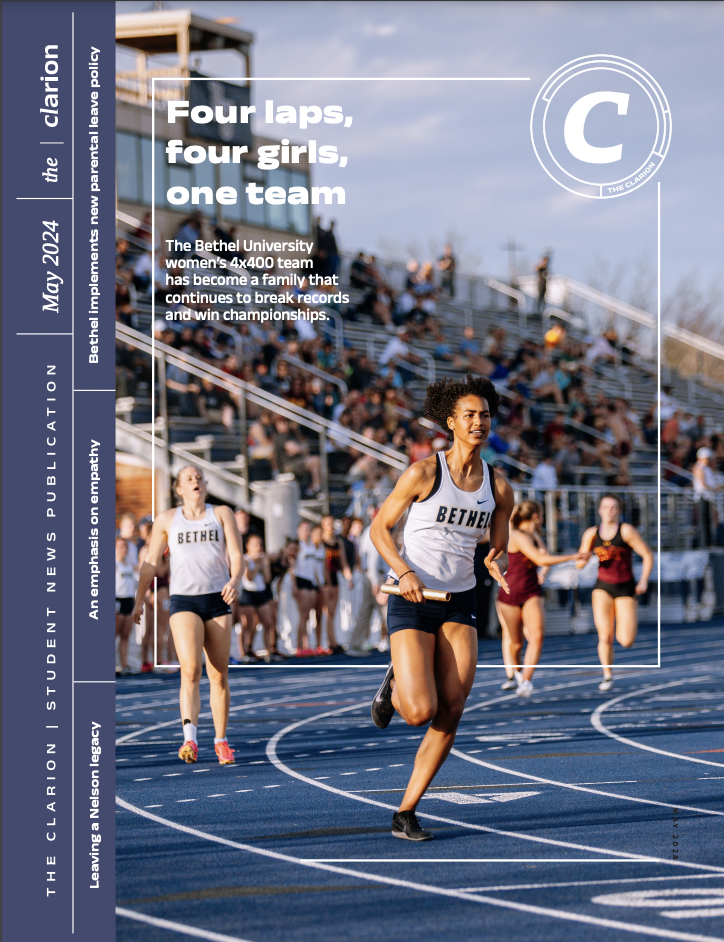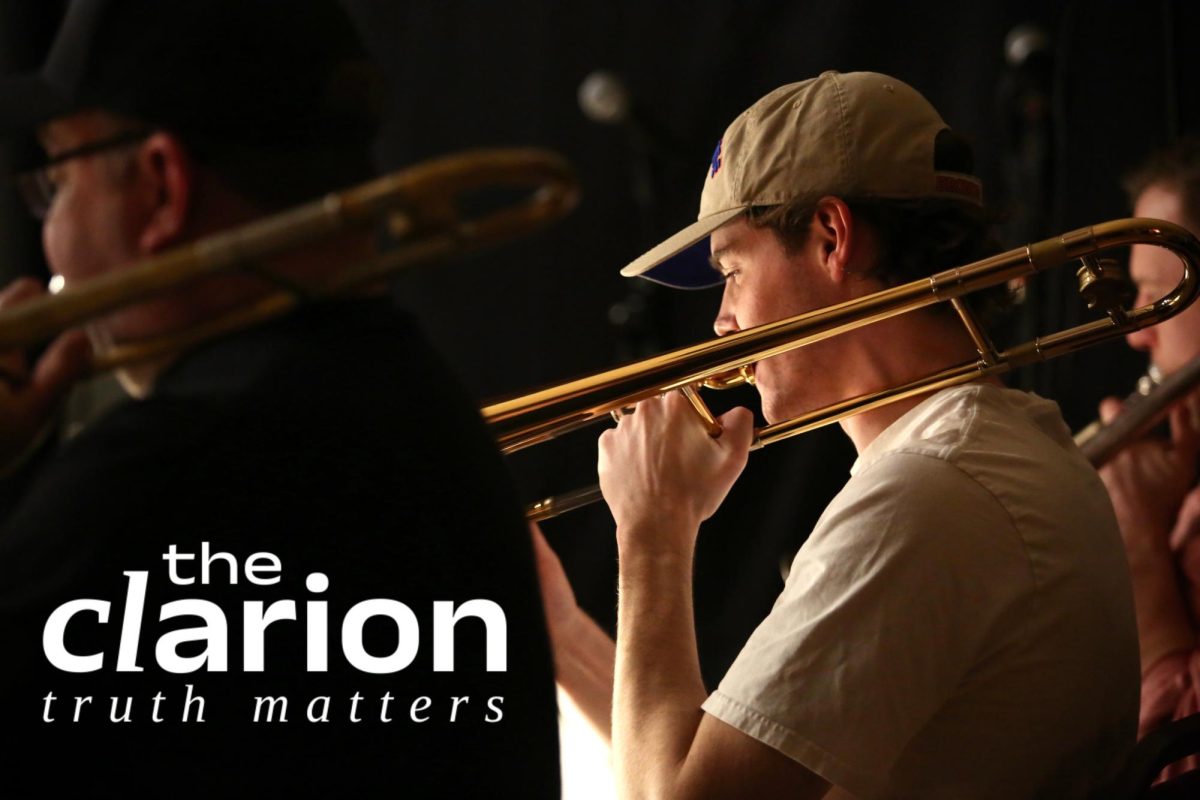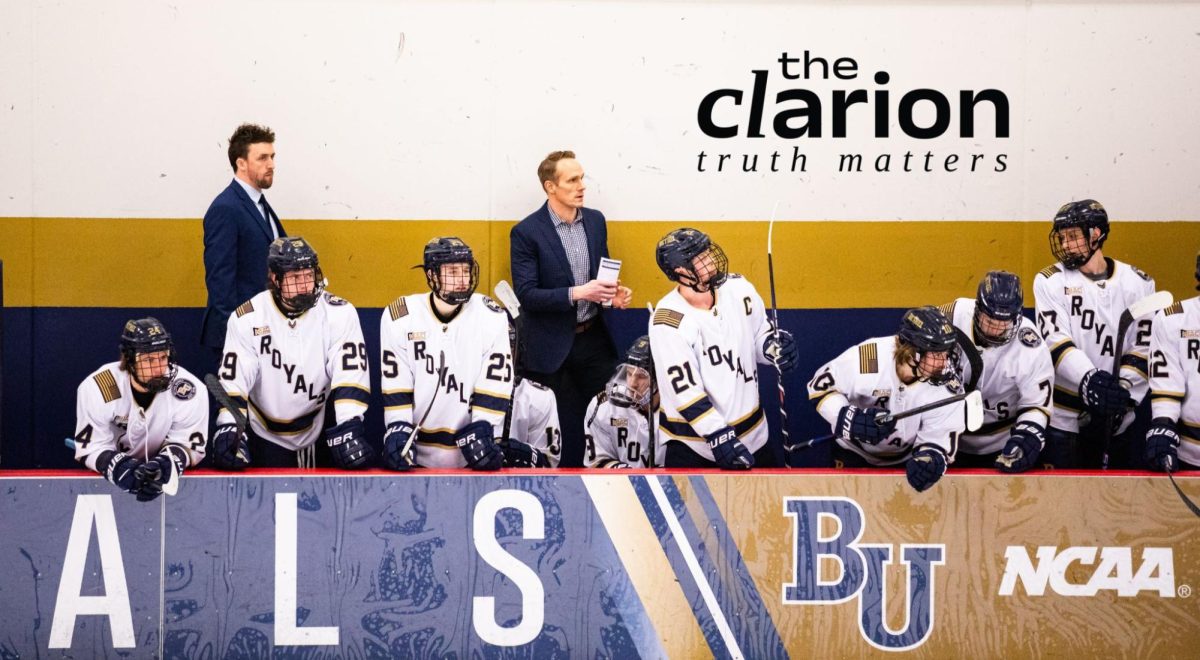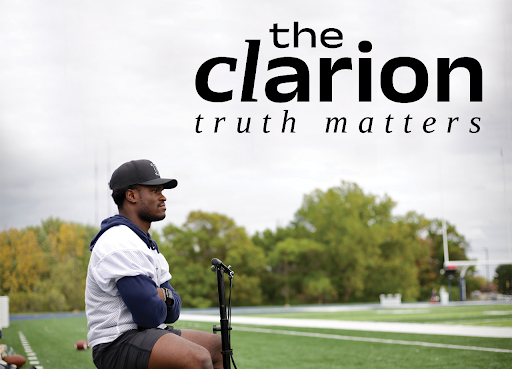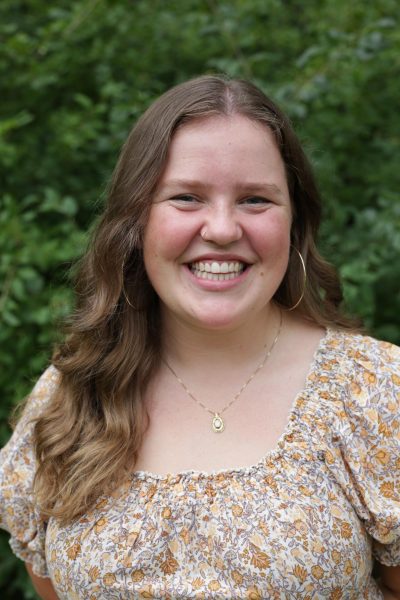In one last hurrah of youthful frivolity before graduation, my friends and I decided to create an intramural basketball team. Our roster has only three people who have played basketball before, five players with current or past knee injuries and five remaining players who are just there for the bit. We are the least formidable opponent on the court.
We often play against current student athletes in their offseason, the generally athletic and people who actually know the rules. What’s a double dribble?
To make up for our lack of skill, our team — the U.S. Men’s National Soccer Team — comes with style. Cringy t-shirts. Jorts. America sweatbands. Each week a new theme to throw off the opposing team with our whimsy and charm.
We have yet to win a game, but the community among my teammates makes my heart want to burst and my throat hurt from laughing so much.
I haven’t just found connection within my last semester at Bethel on the basketball court. It’s been present for the past four years.
I felt connected with my freshman floor when we jumped into Lake Valentine on the last day of school. Or with The Clarion when we bought a cake to celebrate Roar Day. Or when I played trivia with professors in the HiPPoS lounge.
But I’ve also felt personal disconnect in other small ways. Like when I swayed awkwardly at my first Vespers of freshman year, not knowing any of the words to contemporary worship songs. Or when I’m the only roommate left on campus because Milwaukee is too far to drive back for family dinner on the weekends. Or when I came back from studying abroad in Lithuania and everything wasn’t exactly as I left it eight months before.
These feelings of personal disconnect have also been felt on a larger, institutional scale. The scholarship that helped make Bethel affordable for me no longer exists. My financial aid wouldn’t cover studying abroad even though it was a degree requirement. The English and Journalism program has been cut in half — from eight to four full-time professors — since I first stepped into Reporting I.
The Clarion has experienced this back and forth between connect and disconnect, too. Our publication recently won three awards from the Evangelical Press Association, but sometimes we face pushback for telling tough stories. However, we remain on campus as a student publication, attempting to share truth — even when it’s hard.
Right now several students, faculty and staff feel a deep sense of disengagement. Some faculty have been so dissatisfied due to institutional changes that they have left Bethel for other jobs. Transfer students struggle to navigate campus as their fellow students have already established friendships and routines. Seniors about to graduate worry about the unknown that comes after getting their diploma.
But life-giving community is also abundant on our campus. Lois Cordes, the woman behind Print Services, finds community talking among students even though many may never know her name. Students identifying as LGBTQ+ are able to explore their identities within the safe, pastoral space of Prism. The women’s 4×400 relay team dominates on the track and finds community within the team when not racing.
The idea of leaving my community at Bethel scares me, but I know that disconnection and connection aren’t mutually exclusive. Although I sometimes may still feel like a freshman — masked up and sitting timidly in the back of The Clarion meeting — I can count the number of days I have until graduation on my fingers. Even when the intramural season has ended, I can still watch my GoPro footage, reminiscing about when we almost tied up a game. And by almost, I mean we lost 14-27.
—
Stories in this issue:
When the wheels fall off: Changing faculty morale
Four laps, four girls, one team
Pinching pennies: On versus off-campus affordability
Five LGBTQ+ affirming churches in the Twin Cities
Bethel implements new parental leave policy
How to live with a biokinetics major






